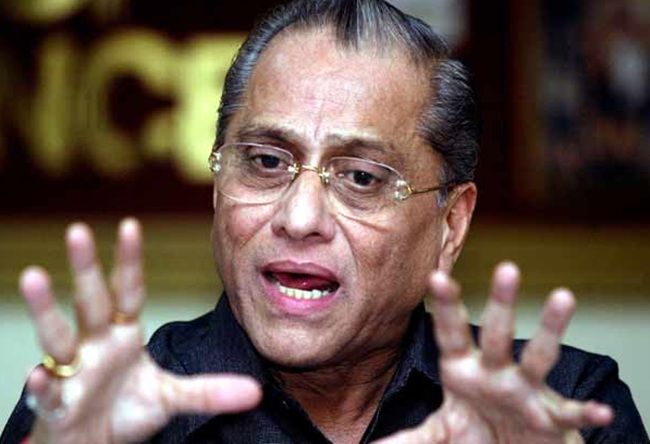Today BCCI is one of the richest sporting bodies in world sports with a license to rule world cricket but it was Jagmohan Dalmiya who will be credited with it, says Arindam Majumder

It was the final day of the second Test match of the 2008 series between India and Australia. The match, which already had its fair share of controversy with complaints of racial abuse against Indian spinner Harbhajan Singh, ended in Australia’s favour with the Indians livid against umpire Steve Bucknor. “Only one team is playing in the spirit of the game,” said captain Anil Kumble at the post-match presentation.
'Cricket has lost a very experienced and seasoned administrator'
From PM Modi to Tendulkar, India mourns passing away of Dalmiya
BCCI chief Jagmohan Dalmiya passes away
What unfolded after the Test took cricketing relations between the two countries to their lowest level, but it also stamped the Board of Control for Cricket in India (BCCI)’s authority over world cricket. India threatened to pull out of the tour, which resulted in Steve Bucknor being removed from the next game while Singh was cleared to play. BCCI is today one of the richest sporting bodies in world sports with a licence to rule world cricket and the credit goes to Jagmohan Dalmiya.
The picture was not so rosy in the 1992 when Dalmiya, popularly known as Jaggu dada, took charge as the BCCI secretary. The richest cricketing board was then in deficit of Rs 80 lakh. Back then, state broadcaster Doordarshan held a monopoly over telecast rights and the BCCI had in fact to pay Doordarshan for broadcasting the games. With cricket striking the nation’s chord after the World Cup victory in 1983, the Marwari business acumen in Dalmiya sensed the opportunity to cash on it. Dalmiya, along with I S Bindra, decide to end state broadcaster Doordarshan’s monopoly by selling telecasting rights of the 1993-94 India vs England series to Transworld International for $600,000 per game.
For the 1996 World Cup jointly hosted by India, Pakistan and Sri Lanka, Dalmiya managed to do something which changed the language of sponsorship of the game. While the television rights of the tournament was sold to the US-based WorldTel for $10 million, Wills then a cigarette brand owned by ITC Ltd, bought the sponsorship rights for $12 million.
Damiya entered the International Cricket Council (ICC) in 1997 as president. His commercial skills and flair for striking deals turned round the cash-strapped ICC's fortunes. Consider this - when he took over as president, the body had all of 16,000 pounds in its accounts. By the time he demitted office, he had turned the organisation into a profit-making body.
The coup of television rights, which made Dalmiya the most well-known face of sports administration in the subcontinent, also resulted in his downfall. In 2006, the BCCI expelled him on charges of embezzling funds from the 1996 World Cup. He was banned from BCCI meetings, a first information report was filed against him. But Dalmiya refused to stay away from the game. In 2007, he successfully challenged the criminal cases filed by the BCCI before the Bombay High Court. The board was forced to revoke his suspension in 2010.
After virtually holding a monopoly in the West Bengal cricket association, Dalmiya started to eye the top post again when the Supreme Court barred the then president N Srinivasan from contesting the BCCI elections. Despite a late effort by the rival camp, he was ‘unanimously’ elected. Dalmiya died in office at the age of 75 as the president of a BCCI, an organisation whose face he changed forever.








 © 2025
© 2025